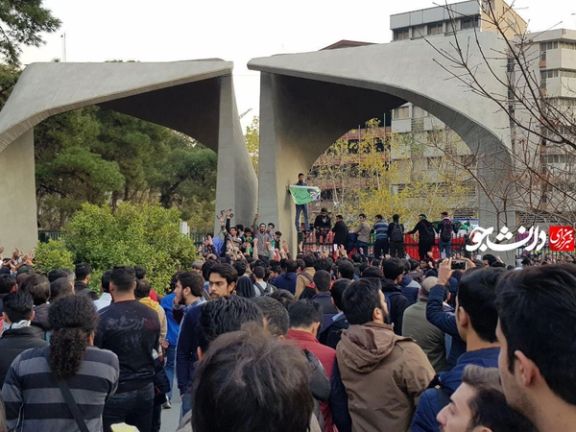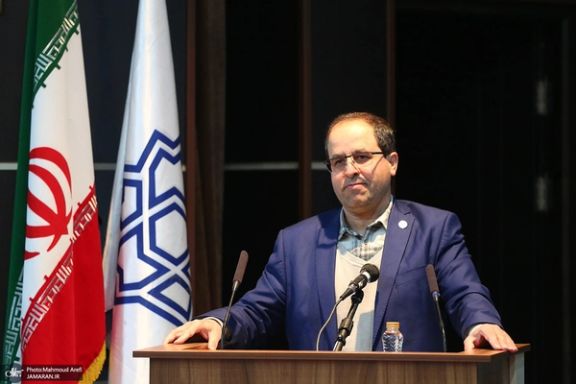Hardline Tehran Chancellor Denies Latest Academic Purges

Once again, the hardline chancellor of Tehran University has denied allegations of purging academics based on their political beliefs, instead accusing those dismissed of "moral issues."

Once again, the hardline chancellor of Tehran University has denied allegations of purging academics based on their political beliefs, instead accusing those dismissed of "moral issues."
In an interview with the semi-official Mehr News Agency on Tuesday, Mohammad Moghimi asserted that not a single academic has been dismissed from Iran’s top state university on political grounds.
“The ethical problems of some professors who make a lot of noise on social media, by the way, has been proven,” Moghimi claimed.
In September 2023, Moghimi asserted that he had “full knowledge” that some academics who had been dismissed had faced lawsuits from students regarding "ethical matters."
The latest wave of academic purges in Iran began during President Ebrahim Raisi's administration. It gained momentum shortly after nationwide protests under the banner of "Woman, Life, Freedom" erupted following the death of Mahsa (Jina) Amini in the custody of the so-called morality police on September 16, 2022. Following Amini’s death, many universities became centers of extensive months-long student protests.
While the law prohibits the military from entering academic institutions, plainclothes security forces and organized militia were extensively deployed to suppress the student protests. Armed plainclothes agents and vigilantes went so far as to attack students inside Tehran’s Sharif University of Technology on October 3, 2022, resulting in the arrest of dozens of students.

Academics Fired Over Protest Support
Ali Sharifi-Zarchi, a prominent member of the bioinformatics and AI Faculty within the prestigious computer engineering department of Sharif University of Technology, was among the first to be dismissed for his support of dissident students.
Zarchi's revelation of the actions taken against him prompted several other academics, such as Somayyeh Sima, a faculty member in the water engineering department at Tarbiat Modares University, to come forward and share their own experiences.
Numerous academics who were dismissed, terminated, suspended, or demoted for supporting protesting students faced arbitrary accusations. They were accused of “academic sluggishness”, “political immorality and media show-off”, and "defiling" the academic arena with their "factional and even anti-national views" by the ministry of higher education.
The purge has been widely attributed to ultra-hardliners allied with President Ebrahim Raisi, aiming to assert dominance in the political arena by ousting other politicians, officials, and academics. Former moderate conservative Speaker Ali Larijani coined the term "purification" to characterize these plans.
Academic Purges: From 1980 To Today
The history of academic purges in the Islamic Republic dates back to 1980, shortly after the victory of the Islamic Revolution. The newly established government's Cultural Revolutionary Headquarters shut down universities across Iran for three years, aiming to eliminate dissenting voices and impose its Islamic revolutionary ideology on higher education institutions.
During that period, thousands of professors and students were purged for a variety of reasons, including their political affiliations and perceived Western influences, in what became known as the "Cultural Revolution".
Throughout Mahmoud Ahmadinejad's presidency (2005-2013), closely aligned with hardliners, the regime sought to recruit academics who shared the ideological stance of the hardline and religious establishment. Concurrently, it endeavored to eradicate its political adversaries, namely reformists, from academia.
Supreme Leader Ali Khamenei has also repeatedly emphasized that universities must adhere to Islamic principles, asserting that those not aligned with the regime should be barred from teaching. In a speech delivered in July 2015, he stated, "Do not employ unreliable individuals in universities at any cost." He urged, "There are good professors; employ them."